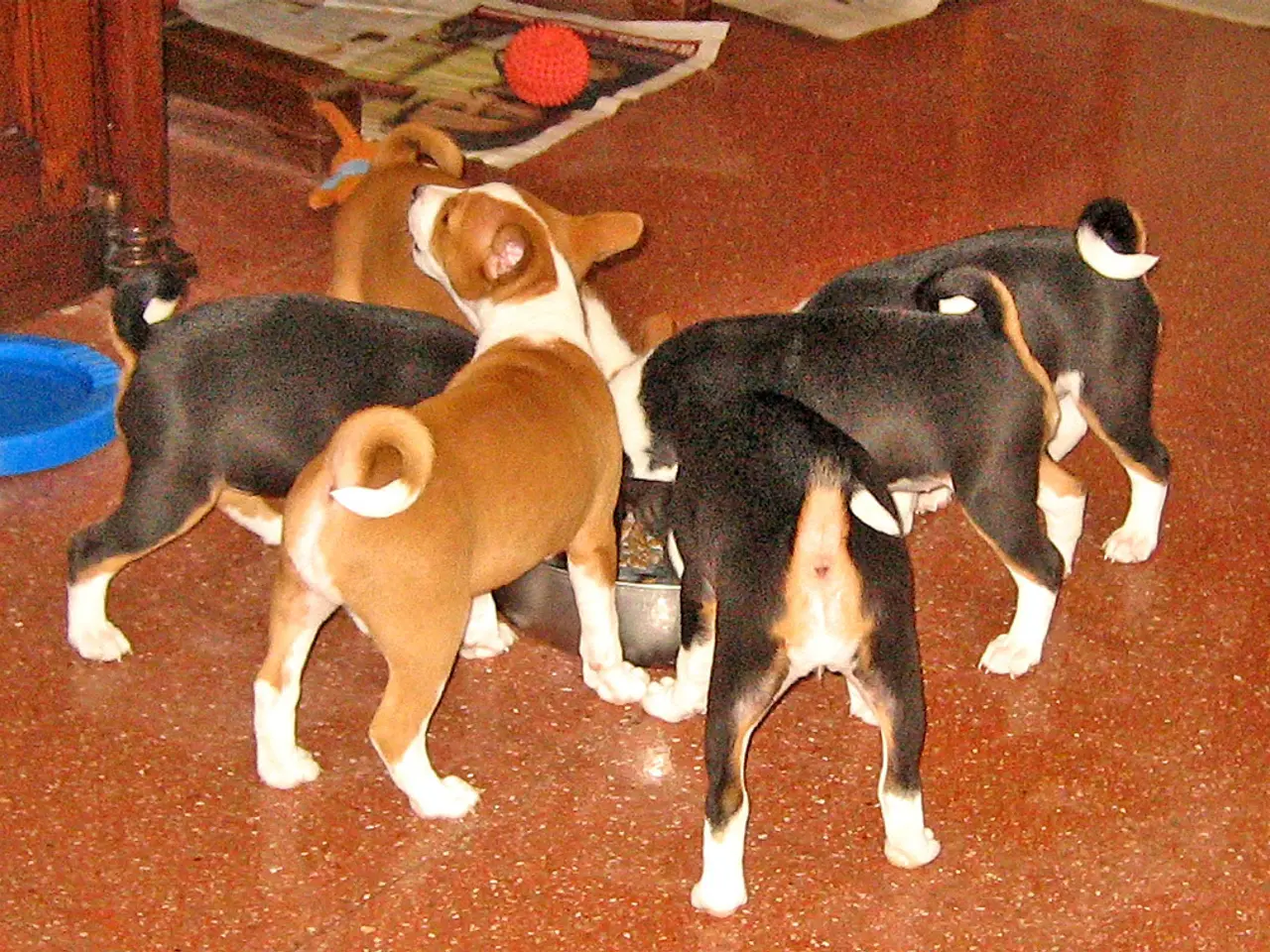Harmful edibles for canine companions: 32 items to avoid feeding your dog
Dogs, our beloved companions, have a digestive system that differs significantly from humans. This means that certain foods commonplace in human diets can be harmful or even toxic to them.
Toxic Foods for Dogs
Some common foods that are harmful to dogs include:
- Chocolate: This sweet treat contains theobromine and caffeine, both of which are toxic to dogs.
- Grapes and Raisins: These fruits can cause kidney failure in dogs.
- Onions, Garlic, and Leeks: Belonging to the allium family, these vegetables can cause anaemia in dogs.
- Avocado: The pit, skin, and leaves of an avocado contain persin, a toxin that can cause heart problems in dogs.
- Alcohol: Even small amounts of alcohol can be fatal to dogs.
- Caffeine: Found in coffee, tea, and energy drinks, caffeine is toxic to dogs.
- Macadamia Nuts: These nuts can cause muscle shakes, weakness, and vomiting in dogs.
- Nutmeg: This spice can cause hallucinations, seizures, and even heart problems in dogs.
- Cooked Bones: Cooked bones can splinter and cause internal injuries.
- Almonds: These nuts can cause pancreatitis in dogs.
- Raw Dough: Raw dough can expand in a dog's stomach, causing pain and potentially requiring surgery.
- Candy: Many candies contain xylitol, a sugar substitute that is toxic to dogs.
- Sugar: Excessive sugar can lead to obesity and dental problems in dogs.
Potentially Harmful Foods
While not as toxic, some foods can still pose risks to dogs. For example:
- Apple Seeds: Apple seeds contain cyanide, which is released when they are chewed.
- Asparagus: Raw asparagus can be difficult to digest and chew, making it a choking hazard for dogs.
- Rhubarb: All parts of the rhubarb plant are toxic to dogs, containing oxalic acid that can cause gastrointestinal pain, cardiac arrhythmia, swelling of the tongue and mouth, tremors, and vomiting.
- Cherries: The pits, stems, and leaves of cherries contain cyanide, a potentially lethal poison.
- Corn on the Cob: Ingesting corn on the cob can cause an intestinal blockage and even intestinal rupture in dogs.
- Mushrooms: Wild mushrooms are potentially toxic to dogs, and it's best to avoid them.
- Cinnamon: While not toxic, cinnamon can irritate a dog's mouth or stomach.
- Grapefruit: The skin, seeds, and rind of grapefruit are toxic to dogs, as its essential oils contain the compound psoralen, which can cause severe photosensitivity, vomiting, and diarrhea.
- Canned Soup: Most canned soups contain high amounts of salt, preservatives, and toxic ingredients such as garlic and onion.
- Ice Cream: Ice cream contains high amounts of sugar and fat, which can cause obesity or even pancreatitis in dogs.
- Blue Cheese: Blue cheese contains roquefortine C, which can cause vomiting, fever, and seizures in dogs.
Healthier Options for Dogs
Given the risks associated with human food, it's crucial to stick to a veterinarian-approved canine diet. Specially formulated diet foods like the WOLFSBLUT VetLine are available for dogs, supporting specific health conditions such as digestion, skin, kidney function, diabetes, weight control, joint metabolism, and urinary stones. These products are grain-free, contain high-quality proteins, and are developed in collaboration with vets for optimal canine health.
In conclusion, while it may be tempting to share our favourite foods with our dogs, it's important to remember that their dietary needs and tolerances differ significantly from ours. Always consult with your vet before introducing new foods into your dog's diet to ensure they receive the nutrition they need to thrive.






